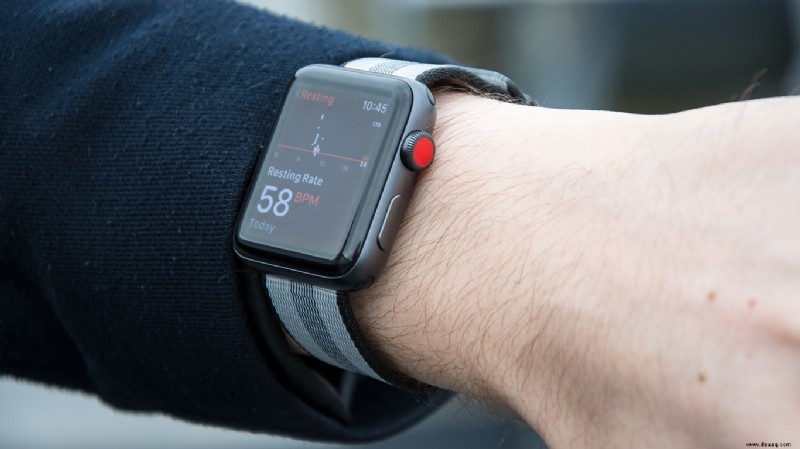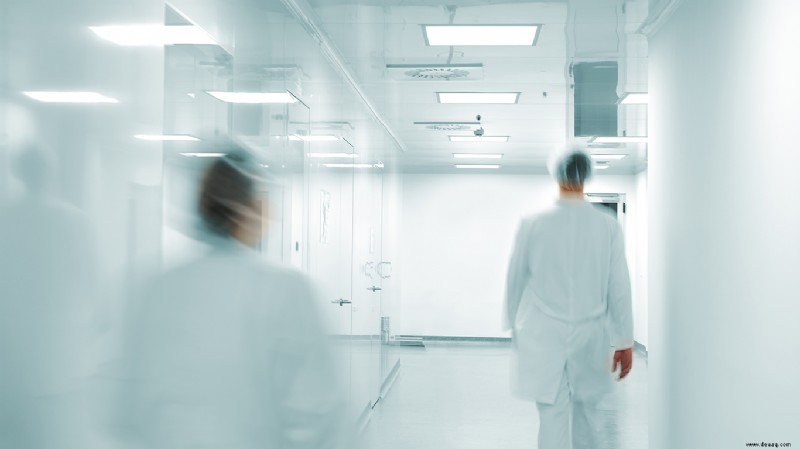Als Teil des neuesten Produktupdates von Apple wurden die Funktionen der Apple Watch erweitert, um umfassenderes Gesundheitstracking zu ermöglichen – einschließlich der potenziell lebensrettenden Erkennung von Herzrhythmusstörungen. Dies markiert das neueste Kapitel in der Entwicklung vernetzter Geräte und Echtzeitanalysen, die eine personalisierte Gesundheitsversorgung der nächsten Generation versprechen.

Gartner prognostiziert, dass es bis 2020 rund 20 Milliarden vernetzte Geräte geben wird. Laut ABI Research sollen bis 2018 bereits 485 Millionen tragbare Geräte im Einsatz sein. Bereits 60 % der Amerikaner tracken ihr Gewicht, ihre Ernährung und ihre Aktivität. Die Bewegung des „quantified self“, bei der intime Lebensaspekte erfasst werden, gewinnt rasant an Fahrt.
Diese Tools haben jedoch ihren Preis: Die Apple Watch Series 3 kostet knapp 400 £. Die Frage der Erschwinglichkeit – besonders bei High-End-Trackern – birgt das Risiko, dass Teile der Bevölkerung von innovativen Präventionstechnologien ausgeschlossen bleiben. Ist fortschrittliche Gesundheitsüberwachung für viele unerreichbar?
Die Kosten der Gesundheit
Unternehmen investieren zunehmend in Wellness-Programme, um die geschätzten 29 Milliarden £ jährlichen Kosten durch Krankheit und Fehlzeiten zu senken. BP belohnt Mitarbeiter etwa mit Rabatten auf Gesundheitspläne, wenn sie eine Million Schritte pro Jahr gehen – verifiziert per Trägermedium. Gartner erwartet, dass bis nächstes Jahr zwei Millionen Arbeitnehmer von ihren Arbeitgebern zu Fitnesstrackern verpflichtet werden.
Berufsgruppen wie Piloten und Feuerwehrleute stehen im Fokus, da ausreichend Schlaf und Stressmanagement entscheidend sind. Bei normalen Bürojobs wird Tracking jedoch kontrovers.
Niemand will Sorge haben, dass ein Freitags-Donut den Blutzuckerspiegel anhebt und die Personalabteilung alarmiert
SAP fördert vergünstigte Fitbits für Mitarbeiter. Oft nutzen jedoch vor allem bereits fitte und wohlhabende Kollegen diese Angebote. Datenschutzbedenken bremsen viele: Eine Office-Genie-Umfrage zeigt, dass 67 % der Befragten den „Big Brother“-Effekt bei Arbeits-Tracking fürchten. Niemand möchte, dass ein heimlicher Donut am Freitag Karrierechancen gefährdet.
Steuern Versicherer auf personalisierte Prämien, bei denen Wearable-Nutzer günstiger davonkommen?
„Ich hoffe nicht“, sagt Hilary Stephenson, Geschäftsführerin der Digital User Experience Agency Sigma. „Aber Motivation durch Anreize ist denkbar, wie bei Autoversicherungs-Apps für sicheres Fahren. Freiwilliges Teilen von Daten für bessere Ergebnisse ist etwas anderes als Zwang für Vorteile.“

Dr. Lukasz Piwek, Dozent für Data Science an der University of Bath, bestätigt: „Es ist bereits Realität. Vitality passt monatliche Prämien an Aktivitätspunkte aus App oder Apple Watch an. Versicherer könnten zur ‚dunklen Seite‘ von Wearables werden – wie Admirals Plan, Facebook-Daten per KI für Risikobewertung zu nutzen.“
Der besorgniserregende Brunnen
Bei chronischen Erkrankungen wie Diabetes bieten Wearables klare Vorteile. In der prädiktiven Medizin klafft jedoch eine Lücke zwischen Versprechen und Praxis.
Als sekundäres Diagnosemittel sind sie noch unreif, trotz Herstellerwerbung. Oft fehlen empirische Belege für positive Effekte, und die Genauigkeit ist umstritten.
„Die Popularität von Wearables schürt hohe Erwartungen“, erklärt Tim Hoctor, Vice President Professional Services bei Elsevier. „Daten-Sammlung täuscht Forschungsnutzen vor. Hersteller sammeln gut, verstehen aber den wissenschaftlichen Kontext selten. Wearables brauchen Experten zur Interpretation für echte Gesundheitsvorteile.“

Sind Hausärzte bereit für Patientendaten aus Wearables? Standards fehlen noch. Der NHS plant ein „Kite-Mark“ für geeignete Geräte; die MHRA klassifiziert Apps als Medizinprodukte. Umfassende Regulierungen sind fern.
Es ist leicht, in eine Ära zu schlummern, in der Gesundheitszugang von trackbaren Daten und teuren Geräten abhängt
Das „quantified self“ aus den 1970ern beschleunigt nun durch Wearables. Von Aktivitätstracking zu Lebensumfassender Erfassung – Big Tech treibt es voran. Bald könnte Zugang zum Gesundheitswesen von Daten und Smartphone-Kompatibilität abhängen.
Piwek schließt: „Digitale Technologie überholt unsere Big-Data-Verwaltung. Datenschutz und Implementierung stehen im Fokus; wir diskutieren mit Ärzten, um Risiken zu mindern.“
Heute öffnet „Wie geht’s?“ Herzdaten-Apps. In zehn Jahren: Wie nutzen Versicherer und Ärzte das? Ohne Daten: Nachteile für Wohlbefinden und Gesellschaft?